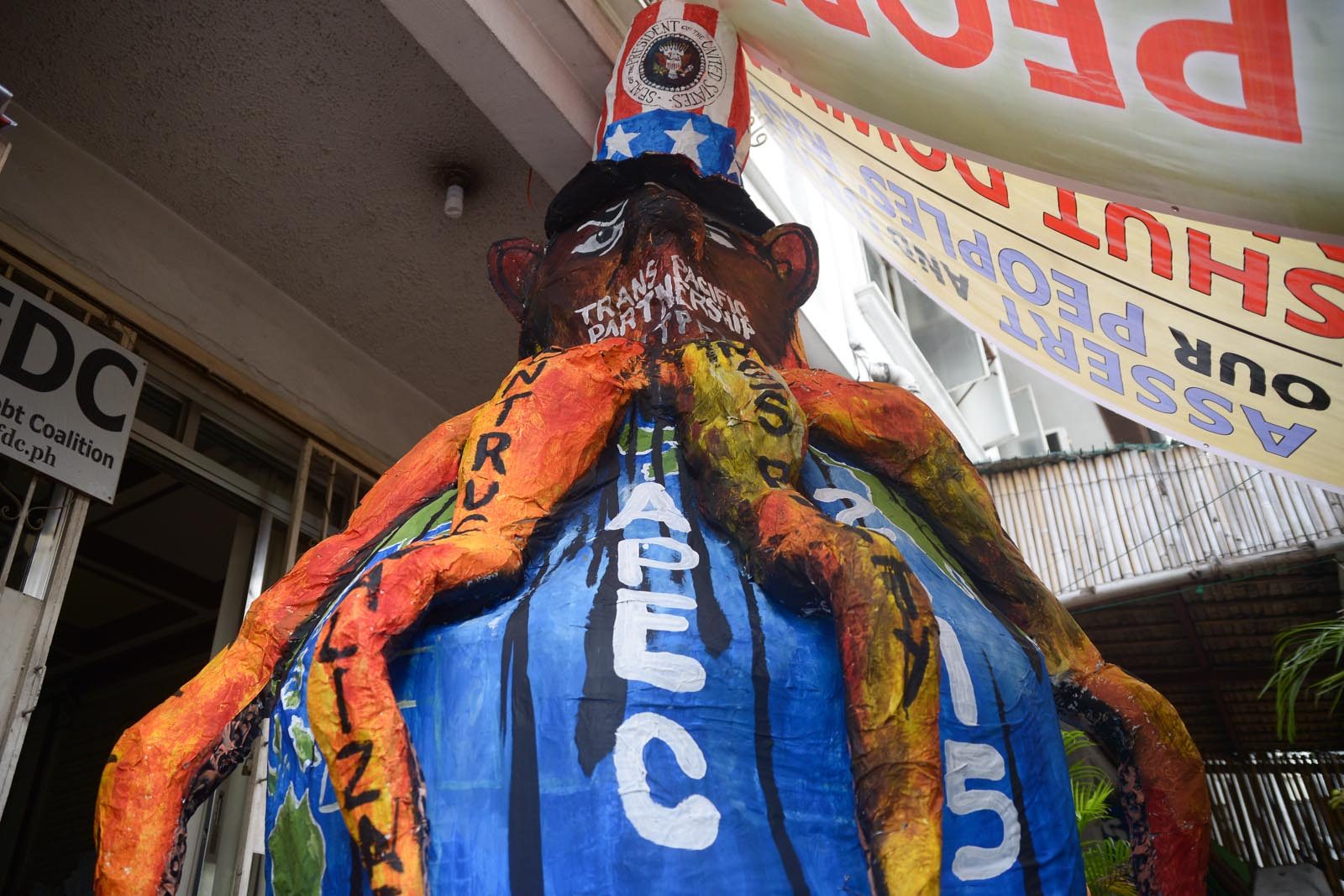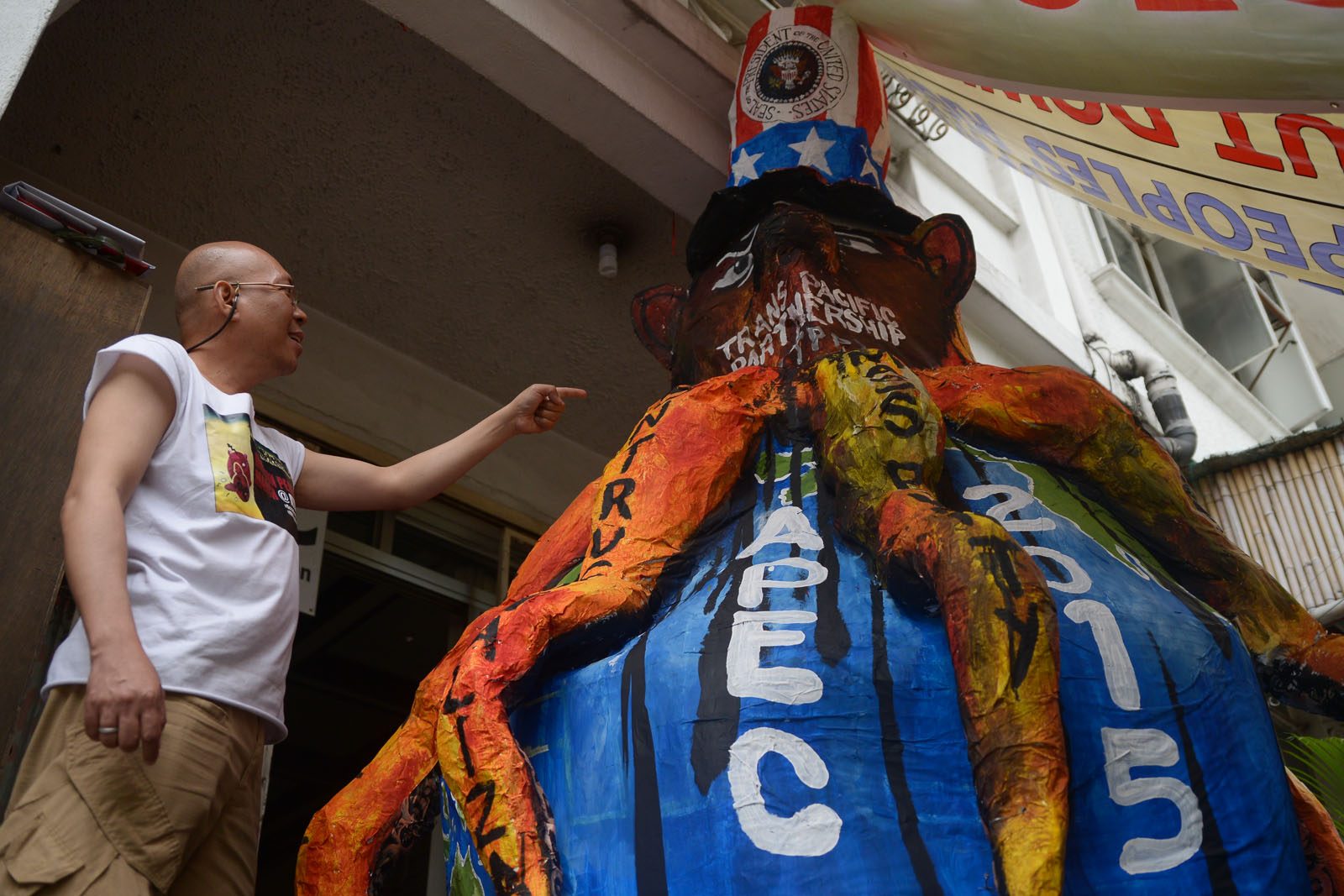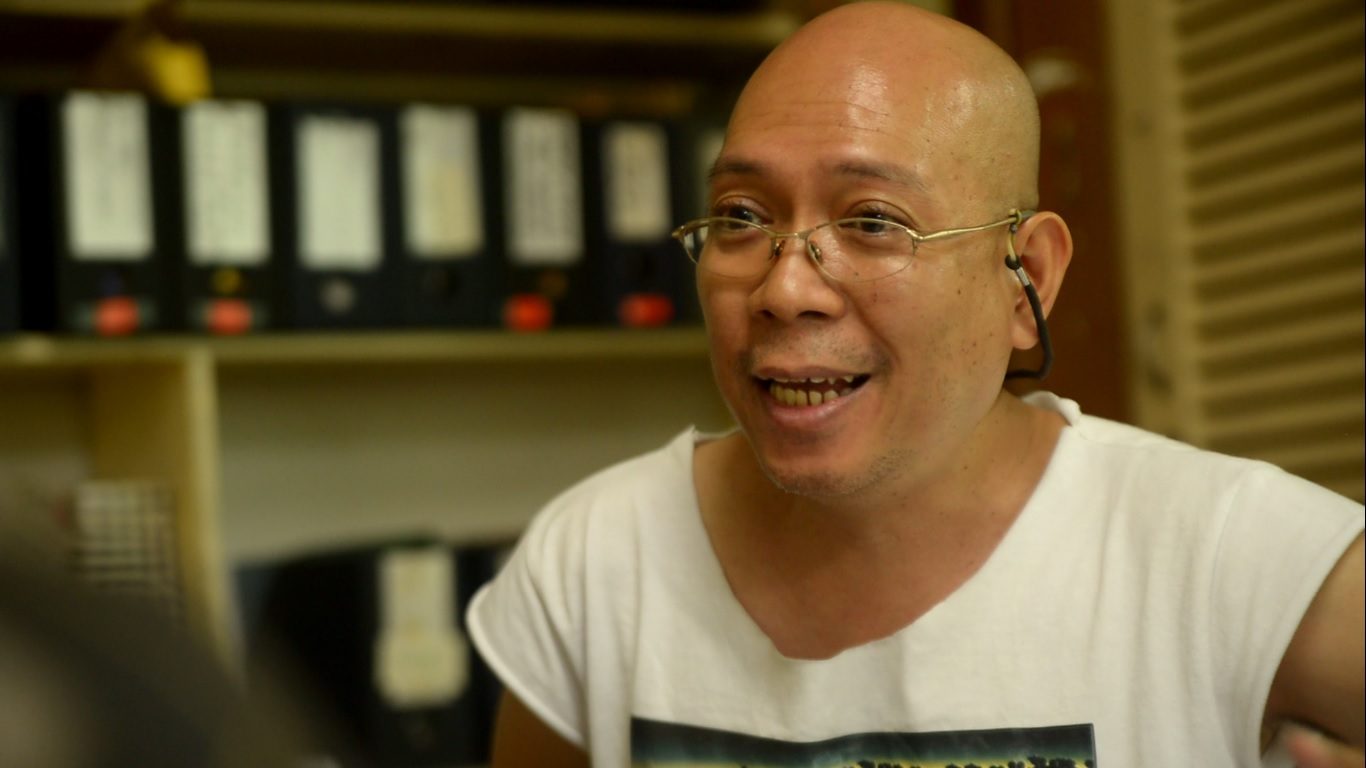SUMMARY
This is AI generated summarization, which may have errors. For context, always refer to the full article.

MANILA, Philippines – How will progressive groups depict US President Barack Obama and 20 other leaders of the Asia-Pacific Economic Cooperation, when they protest APEC’s “imperialist, and exploitative agenda” on Wednesday, November 18?
Through an effigy of a giant octopus corrupting the world, specifically the Asia-Pacific region.
“APEC is essentially a US imperialist-led and imposed neoliberal and capitalist project. It’s essentially an instrument for the rich few to exploit profits from the majority working class masses who remain oppressed across the 21 economies,” Rasty Delizo, People’s Forum on APEC (PFA) secretariat-coordinator, told Rappler Monday, November 16.
PFA 2015, along with other militant and leftist groups, are planning to stage major protests near APEC venues in Manila as world leaders arrive for the Economic Leaders Summit, where trade policies will be discussed and agreed upon.
‘Exploiters’ club’
According to the protesting organizations, APEC is disadvantageous and oppressive to the working masses.
“APEC really stands for Asia Pacific Exploiters Club because this is what they’ve been doing since 1989,” Delizo said.
According to Delizo, APEC has 5 pillars – “moneymaking, exploitative thrusts” – that are detrimental to the public.
- Privatization or when control of public commodities and essentials are sold to the private sector. “The state no longer regulates to keep prices low and affordable. It sold it to the private entities. The working class masses, who cannot afford, are further oppressed,” Delizo said.
- Liberalization, or the need for free trade across the world to lower or eliminate tariffs. “In this trade environment,” Delizo said, “Philippine commodities cannot effectively compete with more quality-controlled foreign commodities entering our market at a much lower price. In terms of competition, we lose out to foreign companies.”
- Deregulation, specifically, the Oil Deregulation Law. “Whenever there are crises in oil-producing countries, prices spike up and the government does not intervene to keep the prices down. Agricultural products and public transportation rates, hence, continually rise,” Delizo added.
- Contractualization, which denies workers the universal principle that all employees need to be regularized. This is rampant in the Philippines, where big and small companies often deny workers of regularization. “They are able to exploit a lot of profit from their workers at a social cost. Workers are viewed as a labor commodity to be exploited,” he added.
- Public-Private Agreements give multinational corporations control over public resources.
‘Effigies not obsolete’

Effigies are a mainstay in protests in the Philippines. Burning an effigy has become a symbol for the left and opposition throughout different administrations.
This same kind of messaging presses some people to ask: Are effigies becoming obsolete?
Delizo does not believe so. “Those people who say such things are very close-minded, and demoralized. They are in support of the status quo.”
He added that those saying that this kind of messaging no longer works are simply attacking progressive ideas.
“The mass movement in the Philippines is always attacked by status quo forces that always feel threatened by the progressive ideas and the alternative frameworks that we assert on the basis of new policy changes. They can never agree to these things,” Delizo said.
‘No violence from us’

While Malacanang and the Philippine National Police have set a strict “no permit, no rally” policy for places near the APEC venues, PAF is still planning to mobilize in Manila.
“The police and the military were the first ones to be hostile. They are already stepping on our democratic right to freely and peacefully assemble,” Delizo said.
He added that under the 1987 Constitution, any Filipino has the right to peacefully assemble. “You do not need any subsequent policy measures to request from the state. Who violates? Who’s hostile? The state or the people?”
With the recent attacks in Paris over the weekend, security is expected to be enforced at a higher level. Thre are concerns that protests during the summit might result in violence.
But Delizo maintained that their protest will be peaceful.
“We expect that the PNP and the AFP will definitely aim to suppress our democratic rights. If there is any violence, it will not come from our ranks. The violence will come from them,” he said.
The last time the Philippines hosted the APEC was in 1996. The summit then was also met with major protests. – Rappler.com
Add a comment
How does this make you feel?
There are no comments yet. Add your comment to start the conversation.